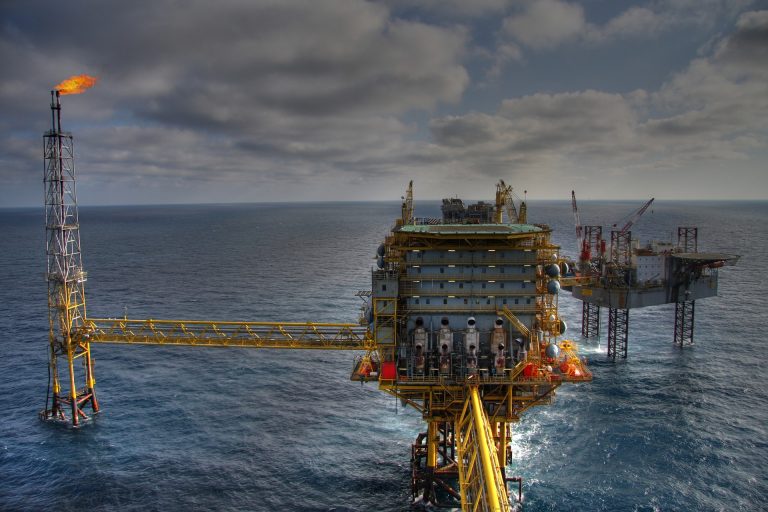President Joe Biden is marshaling nations around the world to release a portion of the oil stored in their national strategic reserves in a bid to lower the price. While many countries have committed to releasing a part of their reserves, major investment banks do not see it significantly impacting the price of oil. Strategic reserves are meant to meet the oil demands of a country during an emergency situation.
In a note published on Nov. 23, Goldman Sachs stated that the Washington-led global reserve release can only potentially result in a downside impact of $2 per barrel of oil, which is “significantly less” than the $8 per barrel sell-off that has occurred since late October. The bank referred to the oil release as “a drop in the ocean.”
“The aggregate size of the release of about 70-80 mb (million barrels) was smaller than the 100+ mb the market had been pricing in, with the swap nature of most of these barrels implying an even smaller, about 40 million barrels net, increase in oil supplies over 2022-23… That is in the context of a market drawing up to 2mb/d at present,” Goldman Sachs said.
The bank stated that any reduction in oil prices can be offset by OPEC by limiting its oil output. This would make the effect of releasing the oil reserves negligible.
Barclays has raised its prediction on 2022 crude oil prices. The bank expects whatever modest surplus in oil next year to be offset by cautious supply response and faster-than-expected inventory drawdown. Barclays estimates a small oil deficit in the fourth quarter this year; inventory will build up in 2022. It does not see the release of oil reserves as significant in the long term.
Success
You are now signed up for our newsletter
Success
Check your email to complete sign up
“We think Strategic Petroleum Reserves are not a sustainable source of supply and the effect of such market intervention would only be temporary,” the bank stated.
The ineffectiveness of the oil reserve release was reflected in the markets. On Nov. 23, Washington announced the release of 50 million barrels of oil from its reserves. But instead of oil prices going down, it shot up. On Nov. 24, Global Brent crude prices rose by 3.2 percent a barrel while West Texas Intermediate crude for January delivery surged by 2.5 percent.
Republican Senator John Barrasso from Wyoming warned that tapping into strategic reserves will not bring down the price of oil. He blamed Biden’s “war on energy” for the spiraling prices. Former President Donald Trump also slammed the White House decision, insisting that strategic oil reserves are only meant to be used for “serious emergencies” like war and “nothing else.” Trump claimed that America was energy independent a year back but now is at the “mercy of OPEC.”
Christopher Guith, senior vice president of the Chamber of Commerce’s Global Energy Institute, criticized the release of oil reserves. He said that America’s “real strategic petroleum reserve” is in places like the Gulf of Mexico and Permian Basin.
“Instead of ineffectual band aids, the White House should focus on policies that will encourage domestic production of oil and natural gas… Rather, all the Administration has done is threaten energy production on federal lands, cancel pipelines and beg Saudi Arabia and Russia for more oil… It’s time to unleash America’s full potential to meet the world’s energy needs,” Guith said in a statement.
John Kilduff, the oil market analyst at Again Capital, said that the increase in oil prices has hurt Biden’s popularity and approvals “in a big way.” Gas prices for a gallon have spiked from $2.12 a year back to $3.41 at present, an increase of over 60 percent. Utilizing oil reserves could also contradict Biden’s constant claim of combating climate change.
“It’s obviously a contradiction… The real climate change champions want higher prices so that other forms of energy, essentially renewable, can be more competitive,” Kilduff said.















